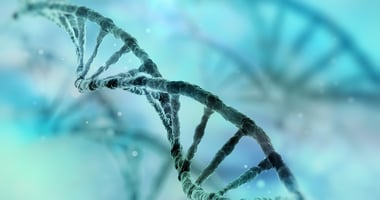Ketogenic Diets May Improve Depressive Symptoms
 Ketogenic diets (KDs)—high fat, low carb, and moderate in protein—may help lower depressive symptoms in adults, according to a meta-analysis published today in JAMA Psychiatry. The jury is still out on whether KDs improve anxiety symptoms, however.
Ketogenic diets (KDs)—high fat, low carb, and moderate in protein—may help lower depressive symptoms in adults, according to a meta-analysis published today in JAMA Psychiatry. The jury is still out on whether KDs improve anxiety symptoms, however.Reinhard Janssen-Aguilar, M.D., of St. Michael’s Hospital in Toronto, and colleagues examined outcomes of 31 experimental studies on the effects of a KD on depressive and/or anxiety symptoms—though the studies included participants with a range of underlying medical conditions (e.g., multiple sclerosis, fibromyalgia, and bipolar disorder).
Fourteen of the studies were randomized clinical trials (RCTs) while 17 were quasi-experimental comparison studies that lacked one or more RCT features such as random allocation. A KD was defined as a diet in which carbohydrate intake was less than 50 grams a day or less than 26% of total dietary energy.
What was found?
For depressive symptoms:
- Pooled data from 10 RCTs found that KDs were associated with moderate symptom improvement overall, with greater improvements seen in non-obese patients.
- Diets that required ketone monitoring were associated with greater improvements than those not requiring monitoring.
- Very-low-carbohydrate diets (10% or less of daily energy from carbs) were associated with greater improvements than those with more carb allowance.
- Pooled data from nine quasi-experimental studies also showed an association between KDs and moderate symptom improvement—supporting the RCT data.
For anxiety symptoms:
- Pooled data from nine RCTs found no association between any KD and symptom improvement.
- Pooled data from six quasi-experimental studies did find an association between KDs and symptom improvement—diverging from the RCT data.
What does it mean?
Janssen-Aguilar and colleagues noted that the heterogeneous composition of patients and interventions prevents identifying how KDs may improve depressive (and possibly anxiety) symptoms, but ketone bodies may restore neurotransmitter balance, reduce inflammation, and/or change gut microbiome composition.
“Future work should prioritize large, preregistered RCTs with standardized KD protocols, rigorous ketone monitoring, appropriate comparators, structured dietary support, extended follow-up, and predefined psychiatric outcomes to determine who benefits and under what conditions,” they concluded.
For related information, see the Journal of Neuropsychiatry and Clinical Neurosciences article “Ketone Bodies and Brain Metabolism: New Insights and Perspectives for Neurological Diseases.”
(Image: Getty Images/iStock/Elena_Danileiko)





